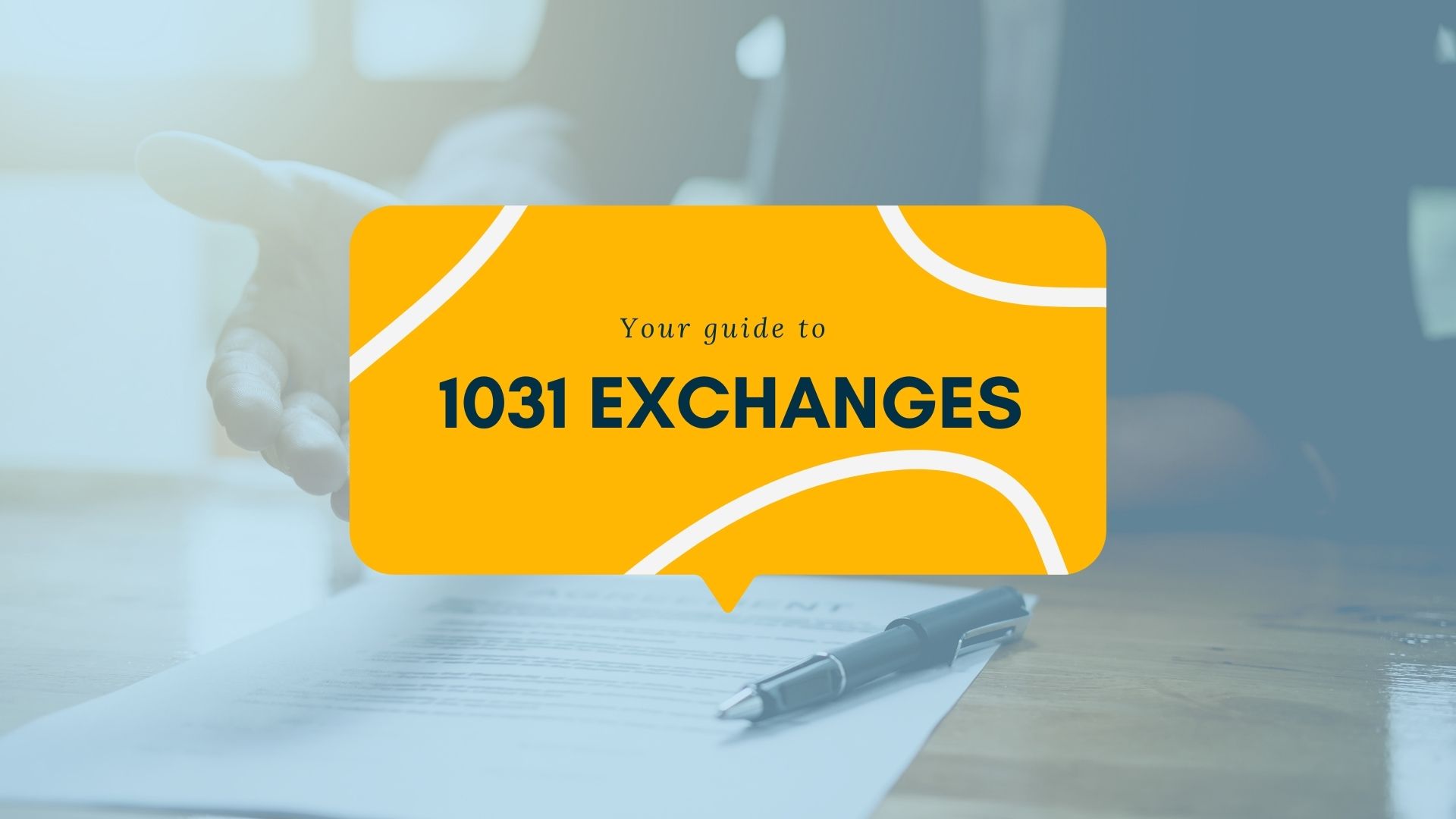You hear it in the intro every time we release a new episode of The Executive REI Show—we love real estate investing because it builds generational wealth! And one of the absolute best ways to do this is through utilizing 1031 Exchanges. They are a wealth-building loophole that lets you grow your real estate investments, keep more money, and build generational wealth for your family.

To talk more about this topic, we invited Anna Myers onto a recent episode of The Executive Real Estate Investing Show. Anna is the COO of Grocapitus and is passionate about data-driven strategies for real estate investment. Anna is a 1031 Exchange expert with experience as both and investor and sponsor.
We went into a lot of detail about 1031 Exchanges, so make sure to listen to the full episode or check out the YouTube video to catch it all!
Data-Driven Processes for Real Estate Investing
Anna’s work through Grocapitus and in real estate investing is heavily reliant on data-driven processes. Coming from a programming and systems architecture background, Anna loves numbers and data. She’s a self-appointed “spreadsheet queen” who believes that real estate investing requires a solid foundation of data and numbers.
Data helps real investors really understand the markets they’re investing in. To make money on your real estate investments, you need to be in a growing community with job creation and population growth. Focusing on data and numbers helps investors confidently choose projects that will make money and build wealth.
What is a 1031 Exchange?
Anna’s first brush with 1031 Exchanges came through her grandfather, a “real estate maverick” in LA who built significant wealth in that market. When he passed away, Anna inherited some of the real estate. Thanks to the 1031 Exchange rules, Anna did not have to pay tax on the appreciation!
So, what just is a 1031 exchange? It’s a section of the tax code that enables a taxpayer to sell investment property with little or no tax liability on the resulting gain.
For example, if your home appreciates from $300,000 at the initial purchase to $500,000, there is an appreciation of $200,000. Traditionally you would pay taxes on that amount after the sale of the property. But using a 1031 Exchange, you don’t. Instead, you take those gains of $200,000 and invest it into new property.
Now, 1031 Exchanges are not a tax-free strategy. They’re a tax-deferral strategy. But here’s the thing—you can keep going with 1031 Exchanges for your entire life, deferring taxes along the way. Then, upon your passing, you can pass on your real estate investments to your family who do not have to pay capital gains on it either.
1031 Exchange Rules and Process
Does it sound too good to be true? It’s not. 1031 Exchanges are a powerful way to build wealth and pass it on to the next generation. That said, they’re not easy! It’s a complex process with several rules to navigate.
Basic 1031 Exchange rules include:
- Cash proceeds from the original (relinquished) property must be reinvested in a new (replacement) property—i.e., you can’t just take the cash and go, but need to keep reinvesting in real estate.
- The replacement real estate investment must be at least as much as the sales price of the relinquished property.
- The sales must be done in the same name (includes an LLC).
- Exchange funds must be done through a qualified intermediary such as a bank. This is because the money cannot go directly to you after a sale—if it passes through your bank account, you’re not eligible for a 1031 Exchange. That said, you need to decide on the exchange before selling and use an intermediary.
- Buy like-kind properties; there are many categories, such as single family, multi-family, commercial, retail, or vacant land.
Not only are there these rules to follow, but 1031 Exchanges need to happen on a specific 180-day timeline. Once your original, relinquished property is in escrow for sale, the clock starts. You have 45 days to produce a list of potential replacement properties which needs to be submitted to your intermediary. Then, you have from day 45-180 to close on a new property.
1031 Exchange via Tenancy-In-Commons
The rigid rules and timeline of a 1031 Exchange makes it complex and even a bit stressful. One way to leverage this process and draw out more benefits is to utilize a Tenants-In-Common (TIC) Agreement.
Simply put, TICs is a type of ownership in which two or more people or entities (i.e., LLC) own separate shares of the same real property. It’s a structure that allows you to become a passive investor. Through a TIC, you can enter a syndication where the sponsor manages the deal and professional property managers handle the day-to-day running of the project.
There are some significant benefits of a 1031 Exchange via TIC into syndication:
- Increases your buying power. With a 1031 Exchange, you need to buy something greater than what you had, so through a TIC syndication, you can buy something larger and more scalable.
- Passive investment. You’re not playing an active role in management and have professional property managers deal with things.
- Ability to diversify into key markets.
- No need to qualify for financing
- Decreases the risk and stress of a 1031 Exchange, as you can identify it on your list of new potential properties.
Many people are not familiar or comfortable with 1031 Exchanges via a TIC because it is a complex process. But there are many qualified and experience sponsors and real estate investors who can help you not only save money from taxes but turn that money into wealth.
Anna had so much more to share with us about 1031 Exchanges including paperwork you’ll need to know about, fees and associated costs, and more details on the process. Make sure you check out the full podcast episode or catch it on YouTube!
To keep up with Anna, visit www.grocapitus.com. You can also check out their education portal at www.multifamilyu.com, which is packed with data-driven knowledge and resources for real estate investors. And if you want to hear more episodes of The Executive Real Estate show, keep up with us here where we provide resources, podcast episodes, and a place for you to submit questions for us to respond to.


